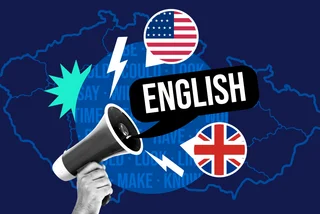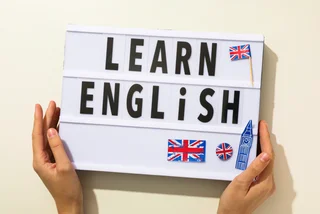When learning a language, the old adage holds true that the more you put in, the more you get out. Any foreigner in the Czech Republic knows that learning Czech is no picnic; but whatever language you’re trying to master, success is more likely for those willing to invest time in the pursuit.
A new study from Duolingo, the hugely popular language learning app, has now suggested that Czechs are at the very top of global language learning commitment. Users in the Czech Republic completed more lessons than people in any other nation in the last year, according to the report, knocking Germany off the top spot. The rest of this year’s top five were Japan, Belarus, Germany and Hungary.
The dedication of people in each country to learning languages was assessed based on the number of completed learning units per user between Oct. 1, 2020, and Sept. 30, 2021, using data from over 500 million learners across 40 different languages and more than 100 different courses.
Unsurprisingly, the most-learned language on the platform was English, although in English-speaking countries such as Britain, the U.S.A., Canada, and Australia, Spanish and French were the top choices.
Asian languages also saw a significant boost in worldwide interest, with Japanese passing Italian to become the fifth most popular option and Chinese moving up to the eighth spot, overtaking Russian and Portuguese. It’s thought booming interest in Asian culture around the world is driving this increase in language students.
“Family and culture have become important motivators for language study, and this is especially true for those studying Asian languages. Over 18% of new learners studying Japanese are motivated by culture; in contrast only 8% of English learners, 9% of Spanish learners and 10% of French learners in 2021 chose culture as their primary reason for language learning,” said the Duolingo report.
It’s thought the growing importance of cultural motivations for language learning were at least in part linked to pandemic restrictions on travel. Learning languages became, for many a means of self-improvement during lockdown rather than a necessity of life.
Still, in the Czech Republic a large number of companies now require some proficiency in English, meaning English was, predictably, the most-learned language among Czechs. This may go some way towards rectifying the poor levels of English ability in the Czech Republic uncovered by the 2021 English Proficiency Index, which revealed that only France, Italy and Spain have lower English ability levels in the EU.
This is cause for concern; the creators of the index noted that in the Czech Republic, English proficiency tends to go hand-in-hand with living standards. Better English often means more opportunities and better wages.
The highest levels of English proficiency are seen among those aged 21–25, and the fact that young people are the group most often associated with the use of language learning apps like Duolingo may be significant. It’s hoped that with Czechs now at the top of the pile for dedication to Duolingo language learning, their many hours spent online will improve the country’s overall language ability.












 Reading time: 2 minutes
Reading time: 2 minutes 
































